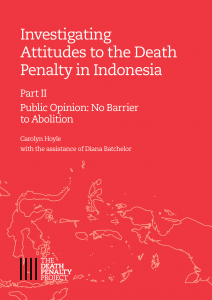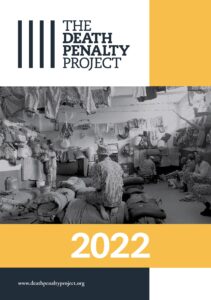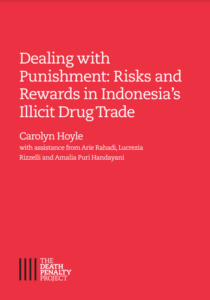Investigating Attitudes to the Death Penalty in Indonesia, Part Two - Public Opinion: No Barrier to Abolition
- Reports and Studies
- 28 Jun 2021
In 2019-20, The Death Penalty Project, in partnership with LBH Masyarakat and the University of Indonesia, commissioned Professor Carolyn Hoyle, of The Death Penalty Research Unit at the University of Oxford to conduct research investigating attitudes towards the death penalty in Indonesia. The findings have been presented in a two-part report; the first details the findings of a nuanced public survey and the second details the findings of interviews conducted with opinion formers.
The public opinion research was undertaken by surveying a stratified random sample of 1,515 respondents – a sample large enough to make inferences from the data about the views of the overall population.
- 69% of the public favoured retention of the death penalty, although only 35% felt ‘strongly’ in favour of retention.
- The research highlighted that the public lacked knowledge about the death penalty; only 2% considered themselves ‘very well informed’, and only 4% stated that they were ‘very concerned’ about the issue.
- Findings suggest that as respondents learn more about the scope and administration of the death penalty, their support for it declines.
- Between a third and a half of the public who initially supported the retention of the death penalty, indicated that they would change their minds and support abolition if shown: the death penalty was applied unfairly (47%), wrongful convictions occur (46%), there was no deterrent effect (38%), or religious leaders showed support for abolition (37%).
- The public were also much less likely to support the death penalty when mitigating circumstances were present and widely agreed that ‘vulnerable’ individuals should be excluded from capital punishment.
Read the companion study Part One: Opinion Formers: An Appetite for Change here.





